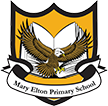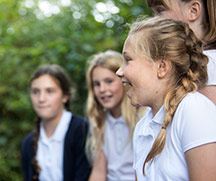Safeguarding
Safeguarding children is a role for everyone at Mary Elton Primary School.
All staff members at Mary Elton, along with all members of our school community, have an important role to play in helping to identify welfare concerns and possible indicators of abuse or neglect at an early stage. Safeguarding is the priority of everybody who works and visits Mary Elton Primary School. We are committed to the highest possible standards in protecting and safeguarding the pupils in our care.
For some children a one-off serious incident or concern may occur and you will have no doubt that this must be immediately recorded and reported. Most often, however, it is the accumulation of a number of small incidents, events or observations that provide the evidence of harm being caused to a child.
It is vital that any concern you have for a child’s welfare, however small is recorded and passed to our Safeguarding Lead.
At Mary Elton we know that it is important appropriately equip our children to protect themselves, at different stages on their learning journey through our school. This we do at planned points in the curriculum, through PSHE (Personal, Social, Health Education) activities or lessons on how to IT safe for example. It also takes the form of discrete events like special assemblies or of planned visits by Community Police Officers.
Safeguarding is of the highest importance in our school and this reflected in the rigorous safeguarding systems we have in place and that we regularly review.
Designated Safeguarding Lead
Tom Newell, Head teacher
Deputy Safeguarding Lead
Rebecca Lamb - Deputy Head teacher, David Hartshorn - SENDCo, Jessica Lucas - Learning mentor, Sarah Lovell - HLTA
Safeguarding Governor
Clare Greenway (Interim)
Chair of Governors and Prevent Governor
James Lee
Safeguarding in the curriculum
At Mary Elton Primary School, safeguarding is at the heart of everything we do. Staff are trained to deliver a broad curriculum that gives all pupils opportunities to experience life in all its diversity; to acquire knowledge, understanding and skills that significantly impact on their personal development, behaviour & welfare; and equips every pupil with the knowledge and skills required for personal safeguarding.
We consistently challenge children to think deeply about safeguarding matters and their own personal, physical and mental well-being. We value pupils’ questions and give them space for their own thoughts, ideas, and concerns. We give them opportunities across the curriculum to explore values, personal rights, responsibilities and equal opportunities. These opportunities help to develop moral concepts that impact positively on safeguarding, promote British values and prevent radicalisation and extremism. As a school, we utilise the many opportunities that are available to explore safeguarding issues with our pupils.
We have developed an open and safe learning environment in which pupils express their views, seek help, help others and ultimately are able to share their concerns with staff. The promotion of equality of opportunity and diversity, for pupils and staff, helps to reduce forms of direct or indirect discriminatory behaviour. Our children learn to not tolerate any prejudiced behaviour but where there are such incidents, swift actions are put into place to address the issues. Discriminatory behaviour is not tolerated and is dealt with quickly and effectively.
We use pupil voice in class times to share ideas, address concerns and promote important values. Assemblies are used to promote personal safeguarding matters and explore themes that are relevant to the pupils. For example, we talk about anti-bullying including cyber bullying and British values including how these values are promoted in our multi–faith society. Staff are quick to challenge stereotypes and the use of derogatory language in lessons and around school. Our school reflects the diversity of pupils’ experiences and provides pupils with a comprehensive understanding of people and communities beyond their immediate experience, including the role of women in society and different family groups including same sex couples.
Throughout the curriculum, there are planned opportunities to promote all forms of equality and foster greater understanding of and respect for people of all faiths (and those with no faith), races, genders, ages, disability, and sexual orientations, through their words, actions and in their influence. Opportunities are created in a variety of subjects to address areas of safeguarding; for example, themes are highlighted through novels in English lessons.
Please visit our E-Safety page for useful links and guides.



